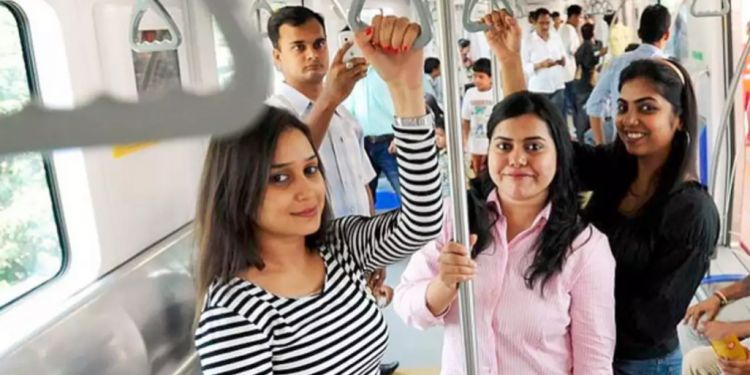Delhi Chief Minister Arvind Kejriwal’s announcement to allow free travel for women in public transport buses in the capital from October smacks of a politically wily move. Kejriwal knows pretty well that legal challenge would follow, as the Constitution does not allow governmental actions on the lines of gender discrimination. His calculations, obviously, are that even in such a scenario he could smile his way through votes from women for at least having attempted a big favour for them. He could also possibly use the excuse that most laws in force in India today are neither gender sensitive nor neutral. A great example is that of divorce, alimony and related laws. Dignity demands that politicians play the game in a fair manner and avoid resorting to dangerous games to win elections and get into power. Sadly, that mindset has changed among Indian politicians of all hues. Starting with PM Modi and extending to every Chief Minister, there is no discernible difference among them all. Power being the ultimate goal, the means to achieve it is of least consequence. Kejriwal is no exception.
Women in India are faced with a lot of discrimination in social life; all of which must end. Indian Constitution promises equal opportunities for all, but this is not happening in practice. Women for ages suffered under the domination of men in all social parameters in this country. At the same time, noticeably, education and winds of change in social life empowered substantial sections of women of late. More so, the urban women, who have opportunities not only to take up jobs but also to be entrepreneurs or to pursue other means of earning that help them stand on their feet, have struggled out of their age-old format. The struggles of women in Indian society, however, are but just beginning.
Returning to Kejriwal’s Delhi, the public transport system is already not in good shape. One reason is the facility of free travel given to students and some other segments in several states. At the same time, this could be seen as an essential social obligation with a view to encourage more and more children to do schooling. With women being allowed free travel, chances are also that larger numbers of women would avail the facility and there could be more of travel. Travel sets individuals free and makes them able to discover the world on their own terms. If other states, too, take a leaf out of the book of Delhi and implement a similar system, it would be prescription for a positive social change through (or brought about by) the public transport system.
Arvind Kejriwal as a Magsaysay award winner created a good name for himself after his services to the underprivileged slum dwellers in Delhi. His joining hands with now conveniently forgotten Anna Hazare to push the anti-corruption movement won him more supporters. He quickly saw an opportunity to dabble in politics and win power, by advancing an argument that one can serve the society better by being in government. In the process, he somehow undercut or damaged the anti-corruption movement.
While some of Kejriwal’s steps as CM won public acclaim in the past, he also proved he was more scheming than the other politicians. He fought the Congress as an anti-corruption activist, but took its support to form a minority government in Delhi which did not last. Some may claim people’s disenchantment with the AAP was reflected in the recent Lok Sabha polls when the party won just one seat. However, that may not be predictive of the Delhi Assembly elections results. Orissa could be considered a good test case in this matter. It is quite possible for the average voter to cast her vote for different symbols at different elections.
Politics cannot be a circus without a ring. Expectations of a new-age leader like Kejriwal helping cleanse the largely corrupt political system in the country and creating new yardsticks for public life have been belied by his recent actions. Several of those who had sided with him when he formed the party have deserted him. That by itself may not surprise most observers of Indian politics.
Kejriwal now wants to retain power, which is understandable. But, his resort to short-cuts might be fraught with serious after-effects; but again Modi has shown the way. In the ‘Jo jeeta woh Sikandar’ or, as one may say it in English ‘Winner takes it all’, a philosophy of Indian electoral politics that justifies lying, killing, blackmailing, dividing and overall violence. His attempt to create a vote bank out of women or any other segment of the society cannot be derided. All these may go to show he is no different from other politicians in this country but neither is he worse than Modi or the others.
War of Attrition
President Vladimir Putin of Russia believed he could finish off, within months, the conflict that he started on European soil...
Read moreDetails





































